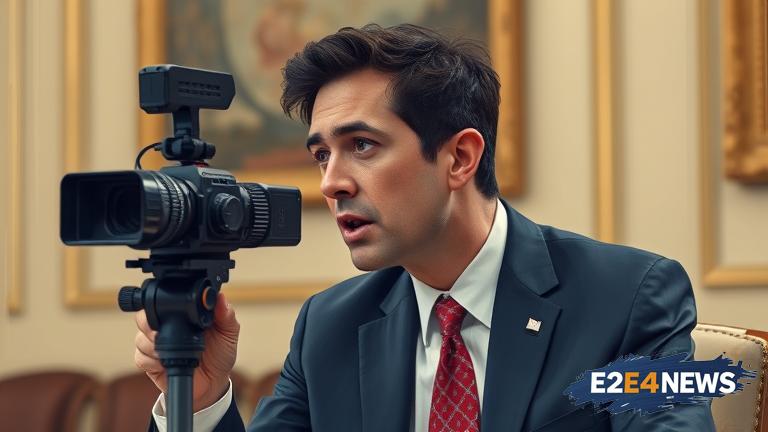A recent interview with CNN’s Jim Acosta, generated using artificial intelligence, has sparked a heated debate about the ethics of journalism in the digital age. The interview, which was conducted by a machine learning algorithm, covered a range of topics, including the Parkland school shooting and the role of the media in covering such events. Acosta, who has been a vocal critic of the Trump administration, shared his thoughts on the importance of a free press and the challenges of reporting in a rapidly changing media landscape. The use of AI in generating the interview has raised questions about the potential consequences of relying on machines to gather and disseminate news. Some have argued that AI-generated content could lead to a loss of jobs for human journalists, while others see it as a way to increase efficiency and reduce costs. The interview has also sparked a debate about the role of fact-checking in AI-generated content, with some arguing that machines are not yet capable of accurately verifying the accuracy of information. Despite these concerns, the use of AI in journalism is likely to continue, with many news organizations already experimenting with machine learning algorithms to generate content. The Parkland school shooting, which was the focus of the interview, is a stark reminder of the importance of responsible and accurate reporting. The tragedy, which occurred in 2018, resulted in the loss of 17 lives and sparked a national debate about gun control and school safety. The media coverage of the event was widespread, with many outlets using social media to provide updates and breaking news. However, the use of social media also raised concerns about the spread of misinformation and the potential for fake news to influence public opinion. In the aftermath of the shooting, there were numerous reports of fake news stories and conspiracy theories circulating on social media, which highlighted the need for fact-checking and responsible reporting. The interview with Acosta also touched on the topic of media bias, with the CNN journalist arguing that the media has a responsibility to report the facts without taking a partisan approach. The use of AI in generating the interview has also raised questions about the potential for bias in machine learning algorithms, with some arguing that these systems can perpetuate existing biases if they are not properly designed. Despite these concerns, the use of AI in journalism is likely to continue, with many news organizations seeing it as a way to increase efficiency and reduce costs. However, it is essential that these organizations prioritize fact-checking and responsible reporting to ensure that the public is informed accurately and reliably. The debate about the ethics of AI-generated content is likely to continue, with many experts arguing that it is essential to establish clear guidelines and regulations for the use of machine learning algorithms in journalism. The Parkland school shooting is a stark reminder of the importance of responsible and accurate reporting, and the use of AI in generating the interview with Acosta has highlighted the need for a nuanced and informed discussion about the role of technology in journalism. As the media landscape continues to evolve, it is essential that news organizations prioritize fact-checking and responsible reporting, while also exploring the potential benefits of AI-generated content. The use of AI in journalism is likely to have significant consequences for the industry, and it is essential that these consequences are carefully considered and debated. The interview with Acosta has sparked a necessary debate about the ethics of AI-generated content, and it is likely that this debate will continue in the coming months and years. The future of journalism is likely to be shaped by the use of AI and machine learning algorithms, and it is essential that news organizations prioritize responsible and accurate reporting as they explore the potential benefits of these technologies. The Parkland school shooting is a reminder of the importance of responsible and accurate reporting, and the use of AI in generating the interview with Acosta has highlighted the need for a nuanced and informed discussion about the role of technology in journalism.





